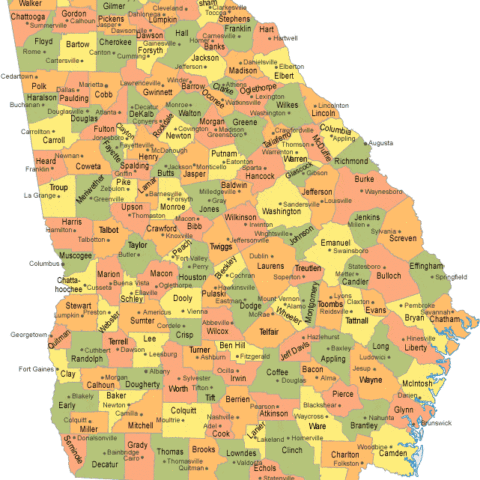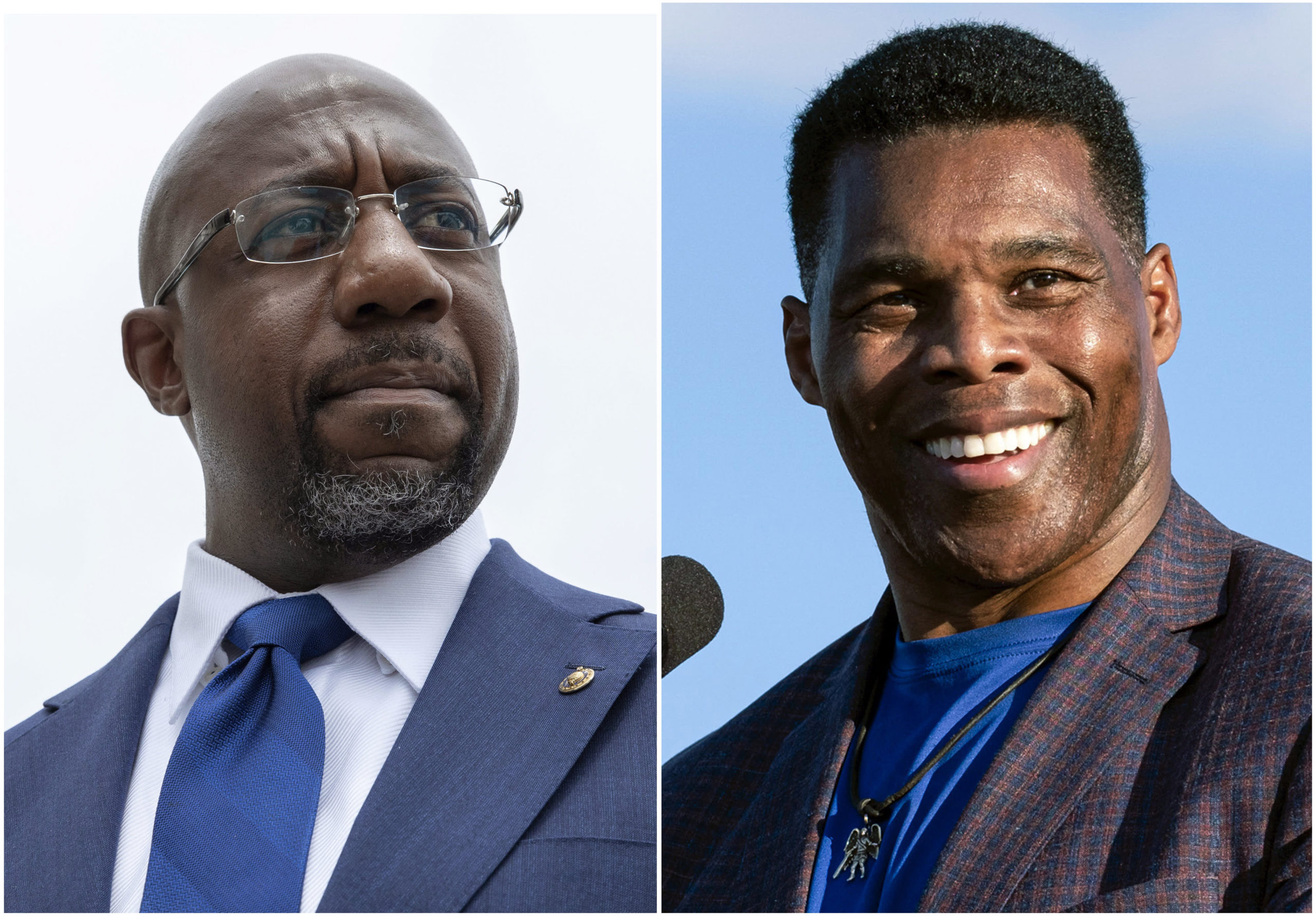Image from Atlanta Journal-Constitution. Leo Frank and his wife Lucille in the courtroom for his murder trial, Georgia, 1913.
In a notorious episode of Georgia’s legal history, Leo Frank, a Jewish factory manager, was convicted of the murder of a young girl named Mary Phagan in Georgia in 1913 through a legal process steeped in anti-semitism and error. Despite doubts about his guilt, he was sentenced to death; in 1915, while on death row, his sentence was commuted by Georgia Governor John M. Slaton to life imprisonment. Frank was murdered by a lynch mob later that year, a crime for which no one was ever prosecuted.
In the modern day, the consensus of investigators and legal scholars alike is that Leo Frank was innocent of murder. In 1986, Frank was pardoned by the State of Georgia. The state cited its lack of action to protect him and grant due process but did not comment on his guilt or innocence.
As such, a decades-long effort to see Frank declared innocent via posthumous exoneration remains ongoing. The effort, pushed largely by community leaders such as Rabbi Steven Lebow and former Governor Roy Barnes, has led to the establishment of a task force to reinvestigate the case and renewed public interest. The one thing it has not led to is an exoneration. Yet.
The lack of precedent for the posthumous exoneration being sought for Frank has long been an impediment to the movement. The recent exoneration of the Groveland Four in Florida, who faced a strikingly similar legal process, could change that. Despite the rarity of posthumous exonerations in America, the recent exoneration of the Groveland Four in Florida paves the way for the long-awaited exoneration of Leo Frank in Georgia. The two cases jointly prove that posthumous exoneration is essential to reconciling past injustices and that it is incumbent upon states to pursue them if justified.
Background
Posthumous exonerations, distinct from pardons in that they completely acquit guilt, are extremely rare in America. In fact, less than 1% of all exonerations are granted after death, and the National Registry of Exonerations records only four individuals who have been exonerated explicitly by name.
According to the University of Michigan School of Law’s report on posthumous and historical exonerations, this can be attributed to the court’s dismissal of proceedings as moot following a defendant’s death. In other words, there’s no established procedure for reconsidering guilt after death. As a result, many historical cases have been surrounded by outrage in light of modern evidence proving innocence without any exonerating action being taken by the state.
The rarity of posthumous exonerations in America highlights the need for a structure by which they can be pursued and past injustices can be remedied after death. The recent exoneration of the Groveland Four in Florida demonstrates a positive step in this direction, emphasizing the importance of addressing glaring injustice in historical cases and providing complete acquittal of guilt even after death.
The Groveland Four and Leo Frank
The Groveland Four case involved four young African American men—Samuel Shepherd, Walter Irvin, Charles Greenlee, and Ernest Thomas—who were wrongfully accused of raping a white woman in Groveland, Florida, in 1949. Their convictions were marred by racial bias, coerced confessions, and lack of due process. If this sounds similar to Georgia’s Frank case, that’s because it is. The cases mirror one another strongly, mainly in their fundamentally flawed legal processes.
- Racial and Religious Bias: Leo Frank was Jewish, and the trial took place in a deeply anti-Semitic and racially charged environment in Georgia during the early twentieth century. The Groveland Four, black men with a white female accuser, faced a similarly highly prejudiced climate.
- Coerced Testimonies: In both cases, witnesses were coerced or intimidated into giving false testimonies. In the Frank case, initial prime suspect Jim Conley was coached by the prosecution to give strikingly inconsistent testimony against Frank. In the Groveland Four case, defendants Samuel Shepherd and Walter Irvin were brutally beaten by law enforcement to secure coerced confessions.
- Lack of Physical Evidence: No concrete physical evidence tied Frank to the murder of Mary Phagan nor the Groveland Four to the rape of their accuser, Norma Padgett. The cases were built completely on circumstantial evidence and coerced testimony, both marred by prejudice.
- Inadequate Legal Representation: Leo Frank’s team faced threats to their safety and a judge who was openly biased against the defense. The Groveland Four were not provided with competent legal counsel during their initial trial.
Posthumous Exoneration
The Groveland Four were exonerated in November of 2021. Although there is no formal legal process for pursuing posthumous exonerations, the five key steps leading to the Groveland Four’s exoneration provide structure to the pursuit.
- Review: In 2018, Florida Attorney General Pam Bondi ordered a review of the Groveland Four case. The case was referred to law enforcement and Prosecutor Bill Gladson’s office.
- Pardon: In 2019, Governor DeSantis pardoned the Groveland Four after his campaign promise to do so.
- New evidence: In 2021, the grandson of the Groveland Four prosecutor informed investigators that he had found letters indicating that his grandfather and the case’s judge knew that no rape had occurred.
- Request for Exoneration: Prosecutor Bill Gladson filed to get rid of Thomas’ and Shepherd’s indictments and vacate sentences and judgments imposed on Greenlee and Irvin. He cited the letters from the original prosecutor and judge, as well as evidence that a primary witness’s testimony and provided evidence was fabricated.
- Exoneration: Lake County Circuit Court Judge Heidi Davis cleared the charges against the men and issued a ruling that effectively exonerated them of the crime.
Given the similarities between the cases, activists and lawmakers in the state of Georgia could find a path to posthumously exonerating Leo Frank by following a similar structure. Although the Groveland Four exoneration does not directly establish legal precedent from a different state, it does establish that a framework exists by which posthumous exoneration efforts can be successful. This achievement offers a beacon of hope after decades of effort.
More broadly, the Groveland Four and Leo Frank cases serve as a powerful testament to the fact that resolving past injustice demands an established process for pursuing posthumous exoneration in American court systems. These cases, marred by prejudice, coerced testimonies, a lack of physical evidence, and inadequate legal representation, illustrate the inherent flaws in legal proceedings that failed to uphold the court’s fundamental duty to justice.
The exoneration of the Groveland Four demonstrates that with a structured approach, courts can right historical wrongs and provide complete acquittal of guilt, even after death. As we move forward, states must recognize their responsibility to pursue posthumous exonerations when justified and create clear legal pathways to do so. Only such action can ensure that no one is denied the opportunity to be absolved of crimes they did not commit, even if they can no longer speak for themselves.


